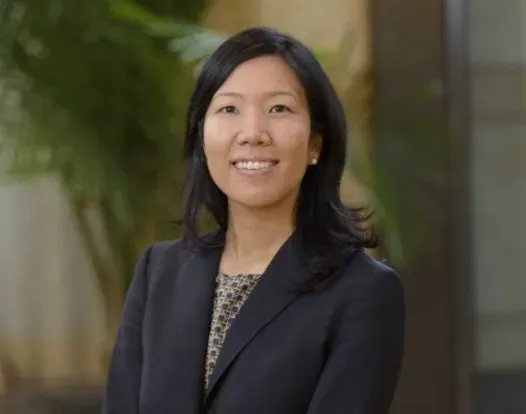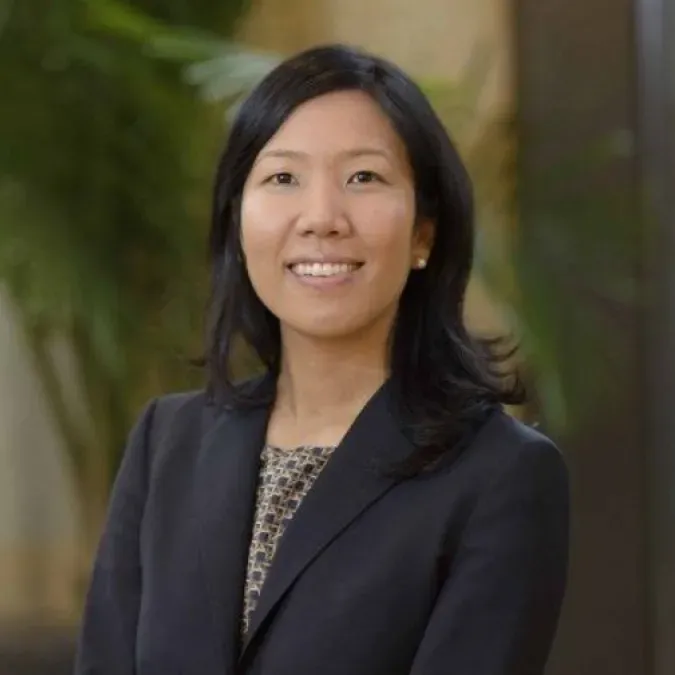These researchers have dedicated their careers to finding new treatments and cures for people with cancer.


A mother with cervical cancer has tried every standard treatment available to her, but her cancer continues to recur. She wants to live long enough to see her daughter graduate from high school. Despite having an immune system exhausted from standard chemotherapy, she takes a leap of faith and tries a promising experimental drug as part of a clinical trial recommended by Dr. Kyi, a gynecologic oncologist and clinical researcher at the Memorial Sloan Kettering Cancer Center (MSK).
Dr. Kyi works to understand the genetic and immunologic drivers of gynecologic cancers, designing and leading clinical trials to explore the effectiveness of emerging immunotherapies.
“I have a special interest in early drug development of novel targeted immunotherapeutics and the investigation of alternative strategies of drug delivery,” said Dr. Kyi. “My prior fellowship work specifically investigated ‘autovaccination,’ the use of the tumor itself as the antigen source.”
Activating Immune Systems Into Action
Supported by a Conquer Cancer grant, Dr. Kyi, then a newly attending physician at MSK, secured protected research time to translate her oncology fellowship work into an early-phase clinical trial. Dr. Kyi contributed to a phase I trial exploring the effectiveness and tolerability of intralesional talimogene laherparepvec (T-VEC) for patients with advanced-stage skin-related solid tumors who have few remaining options for treatment. T-VEC is a tumor-targeting virus designed to make a hormone that propels the immune system into action. Dr. Kyi and her multidisciplinary team evaluated responses to T-VEC with or without radiation therapy.
“The results of our study were informative of feasibility and demonstrative of the safety and tolerability of intralesional T-VEC given in combination with radiation therapy. [However], a limitation of the trial was the study population of patients with refractory disease [in whom] several other lines of treatment [failed]—often with recent chemotherapy, and thus already highly immunosuppressed,” said Dr. Kyi. “The trial was instructive in the design of future combination studies of T-VEC with other systemic therapies, including immune checkpoint blockade, which are being investigated in the clinic.”
Subsequent Research
These takeaways from Dr. Kyi’s Conquer Cancer-supported work informed the next phase of her research. She went on to receive another Conquer Cancer grant. This funding supported a pair of related studies focused on the development and evaluation of therapies targeting WT1, a cancer-causing gene that can make cells multiply out of control. Mentorship from MSK oncologists helped Dr. Kyi to maintain research progress despite unforeseen product delays.
“Due to the COVID-19 pandemic, there were delays in the development and manufacturing of ESK-TCE. Under the mentorship of Dr. David Scheinberg and Dr. Roisin O’Cearbhaill, the drug product is being reworked as part of an alternative T-cell platform, a chimeric antigen receptor (CAR) T-cell therapy, engineered to secrete the bispecific T-cell engager (BiTE) constructed from a TCR mimic antibody (ESK1-BiTE) against WT1/ HLA-A2 complex,” explained Dr. Kyi. “We are finalizing the preclinical and toxicity data and quality assessments of the new drug product.”
Helping Patients Live Longer
Dr. Kyi encouraged her patient, the mother with cervical cancer, to participate in this early-phase study.
“My patient enrolled in our early-phase clinical trial of a bi-specific antibody and experienced a partial response to treatment that lasted more than six months. During that time, she was able to see her daughter graduate from high school,” said Dr. Kyi. “Translational work bridging this clinical response to biomarker development allows us to enrich future clinical trials for those patients most likely to [experience a response].”
Dr. Kyi’s other Conquer Cancer-supported study was an early-phase clinical trial testing the effectiveness of WT1-sensitized T cells as part of the treatment approach for patients with ovarian cancer. The trial showed immense promise: Dr. Kyi and team found the WT1-targeted approach is safe and tolerable for patients. Partnering with a global network of research peers, Dr. Kyi aims to elevate and tailor these targeted therapies in patients with recurrent disease and/or whose immune systems have adapted to standard treatments.
“This phase I trial was the first human application of autologous WT1-sensitized T cells in the treatment of patients with recurrent ovarian cancer. We demonstrated the feasibility and challenges encountered with this immunotherapeutic approach,” said Dr. Kyi. “The lessons learned from this proof-of-concept clinical trial provide insight for potentially optimizing the use of immunotherapy in ovarian cancer, building a foundation for future T-cell-based treatments, and expanding the scope of WT1-targeted therapy as a treatment for recurrent ovarian cancer.”
The Power of Patient Impact
Familial experiences with cancer fuel Dr. Kyi’s work toward better treatments. Her mother passed away from duodenal cancer in 2006, and her father was diagnosed with liver cancer in 2021. His oncologist suggested an experimental treatment approach, but he was hesitant about new cancer drugs. Dr. Kyi encouraged her father to give it a try.
“With permission, I told him the story of a grandmother with recurrent endometrial cancer with lung metastases who received this same experimental treatment as part of a clinical trial in which I treated this patient. Three years later, her scans showed no evidence of cancer, and she continues active life including leading a camp for 20+ kids every summer. My dad took a chance and decided to move forward with treatment,” said Dr. Kyi. “One year later, my father is on this same experimental therapy, with undetectable tumor markers.”
Such impactful moments power Dr. Kyi’s persistence to accelerate research for every patient. Helping to extend the lives of patients—and seeing them experience meaningful moments with loved ones—are at the heart of all Dr. Kyi does to conquer cancer.
“Over the last decade, great strides have advanced the scope of therapeutic opportunities for patients with gynecologic malignancies. I believe we can do even better. This is what motivates the research I do: the aspiration to give patients novel therapeutics that could help them live longer and better than our current standard practice,” said Dr. Kyi. “Although my patient’s time was limited, she and her family were incredibly grateful for those few extra months of response, which allowed her to create lifelong memories for her daughter. These individual stories of research-driven success motivate me in both the clinic and in my research.”

